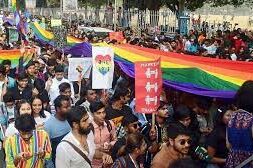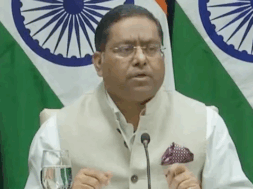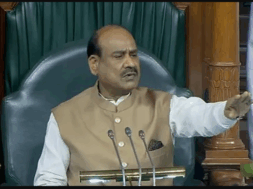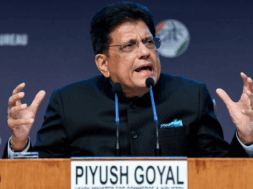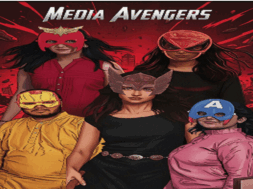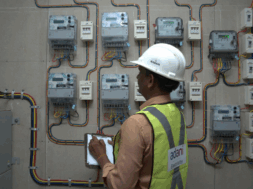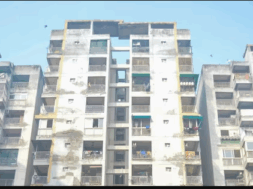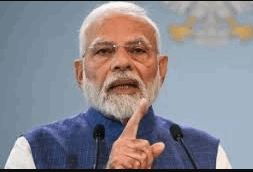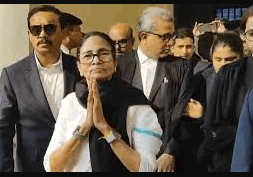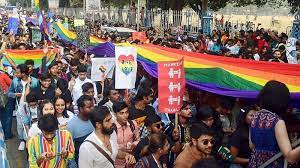
NEW DELHI, Apr 18: The battle in the court room for legal recognition of same sex marriage in India began on Tuesday with a brief but intense sparring session between the Supreme Court and the Centre which saw Chief Justice of India D.Y. Chandrachud at one stage sharply reminding the government that “we are in charge.”
The remark from the Chief Justice, who is heading a five-judge Bench, came in response to preliminary objections from the government represented by Solicitor General Tushar Mehta that “five brilliant individuals” cannot decide for the entire nation and create a “new socio-legal relationship” within the institution of marriage.
Mehta said the petitioners seeking legal recognition of same sex marriage should first address the government’s preliminary objection that Parliament, and not the court, should consider and decide the issue.
“I am sorry, Mr. Solicitor General, we are in charge… Don’t tell us how to conduct our proceedings,” the CJI said asking the petitioners to open their case and outline the canvas of their grievances.
The Solicitor General, however, pressed on, arguing that the petitions were not maintainable in the absence of including the States as parties to the case. “Marriage is a subject in the Concurrent List of the Constitution. We cannot have one State opposing same sex marriage and another legislating in favour of it. Every State has separate rules under the Special Marriage Act or the Hindu Marriage Act. This calls for every State to be heard… I or any other person in this court may have a clear view of the issue, but those are not the views of the nation… So let the Parliament consider and decide this issue,” Mehta submitted.
Mehta went on to say that he would have to take instructions on the government’s “further participation” in the case. Justice Sanjay Kishan Kaul then intervened to ask, “Are you saying you will not participate in the proceedings? It does not look nice when you say the government will not participate. It is a very serious issue.”
“I am just saying this is not an issue to be decided by five brilliant individuals [the Bench] on that side and five learned individuals [petitioners’ lawyers] on this side… We have to know what a farmer in South India wants or what a businessman in the North East wants…” Mehta said.
Senior advocates Mukul Rohatgi and K.V. Vishwanathan, for the petitioners, said their fundamental rights could not, and need not, wait for Parliament to legislate. They made it clear that they do not want to touch upon the realm of personal laws, thus obviating the need to involve the States in the case. Rohatgi said he was only seeking a broader interpretation of the Special Marriage Act to include same sex marriages.
In its affidavits the central government had raised preliminary objections to same sex marriage and had claimed that the idea of same sex marriage was merely an “urban elitist view” and would not be in consistent with the Indian ethos.
(Manas Dasgupta)
